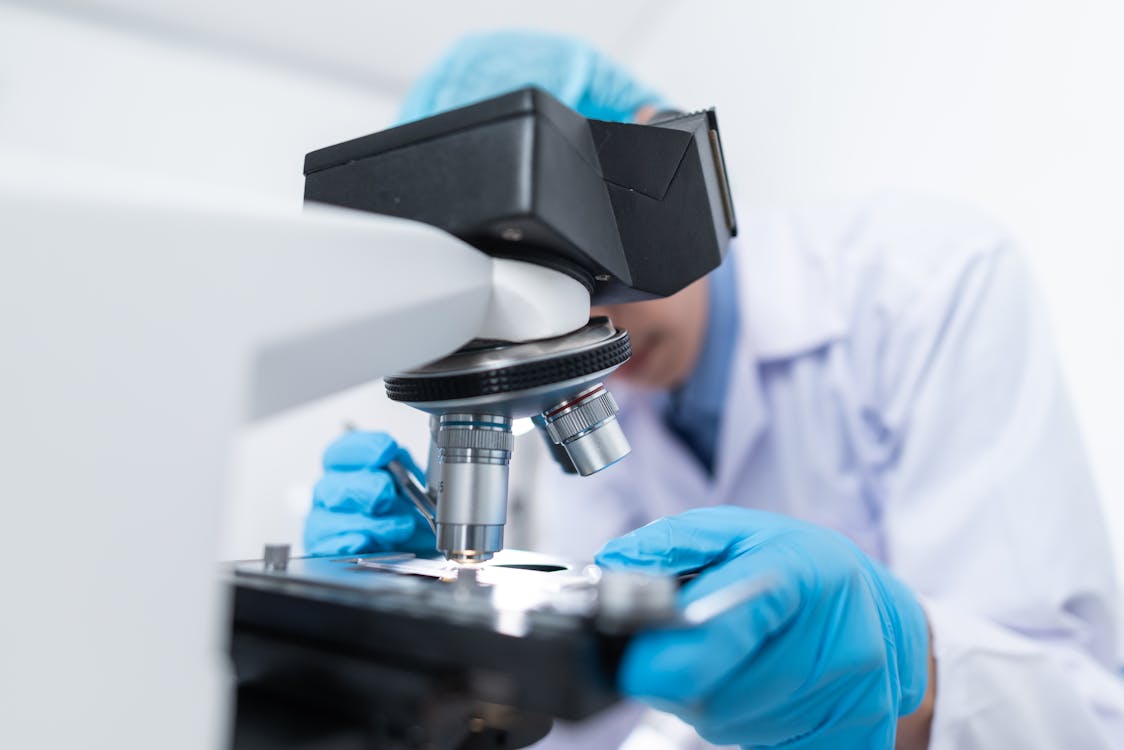How Personalized Medicine and Early Disease Detection Are Shaping the Future of Care
Artificial intelligence (AI) is changing healthcare at a remarkable pace. Its potential goes far beyond high-tech gadgets and sci-fi aspirations; AI is already helping save lives, improve patient outcomes, and personalize medicine. But beyond the jargon and the headlines, what does this mean for real people? How is AI impacting everyday lives, and how can we, as individuals, engage with and benefit from it?
This blog will explore the transformative potential of AI in healthcare, particularly around personalized medicine and early disease detection. We’ll dive into the ethical questions, job transformation opportunities, and how AI can work alongside humans, not replace them. By the end, you’ll feel informed, inspired, and ready to think about how AI’s role in healthcare could benefit you and society at large.
AI and Personalized Medicine: A Match Made in Data

Personalized medicine is all about tailoring medical treatments to individuals rather than relying on a one-size-fits-all approach. Traditionally, doctors rely on averages and historical data to make decisions. AI, however, brings an unprecedented ability to analyze huge amounts of data, such as your unique genetic profile, lifestyle, and medical history. With AI, we can predict how you, specifically, will respond to a medication or treatment—optimizing outcomes and minimizing side effects.
Real-World Example: Cancer treatment has been one area where personalized medicine is making waves. AI can analyze a patient’s genetic makeup to identify mutations driving the disease. Doctors can then choose drugs that target those specific mutations, drastically increasing treatment efficacy. Companies like Tempus and IBM Watson Health are already providing AI-driven insights that help oncologists make more informed decisions for cancer patients.
Early Disease Detection: The Power of AI to Save Lives
Imagine catching a disease before symptoms even appear. AI algorithms can analyze subtle patterns in data—often undetectable by humans—to identify early signs of diseases like Alzheimer’s, diabetes, and even cancer. These predictive insights give patients a crucial head start on treatment and lifestyle changes that can mitigate or even prevent the onset of serious conditions.
Real-World Example: Google’s DeepMind has developed an AI that can predict kidney failure up to 48 hours before it occurs, allowing doctors to intervene in time to prevent it. Early detection not only saves lives but also reduces healthcare costs, as treating advanced-stage diseases is significantly more expensive and challenging.
Moving Beyond the Hype: Ethical Implications and Job Transformation

With such powerful capabilities, AI in healthcare brings important ethical considerations. For example, who is responsible if an AI algorithm makes a wrong prediction? Should AI algorithms be transparent and explainable, especially when they impact life-and-death decisions? And as AI takes on roles traditionally performed by healthcare workers, what will happen to those jobs?
While some jobs may shift, it’s more accurate to say that roles in healthcare are evolving. Rather than replacing doctors, nurses, and technicians, AI is giving them superpowers to make better decisions and focus on what matters most: patient care. For instance, AI can handle time-consuming tasks like data entry or basic diagnostics, freeing up healthcare professionals to spend more time with patients.
Empowering Tip: For healthcare professionals, learning about AI can be a career asset. Online courses like Coursera’s “AI for Everyone” by Andrew Ng or even a basic understanding of AI ethics can prepare professionals to engage with this technology and contribute to its responsible use.
How Can Individuals Embrace and Benefit from AI in Healthcare?
AI might sound complicated, but engaging with its benefits doesn’t require a tech degree. Here are some practical ways individuals can leverage AI to empower themselves:
- Stay Informed About AI-Enhanced Healthcare Options: As a patient, ask your healthcare provider about AI-driven tests and personalized treatment options. Many hospitals and clinics are starting to offer AI-powered diagnostics, which may provide faster, more accurate results.
- Embrace Preventive Care Through Health Tech: Wearable devices, like Fitbit and Apple Watch, use AI to monitor your health and provide early alerts. You can set up alerts to notify you if something unusual is detected in your heart rate, sleep, or physical activity levels. Early intervention is key in many diseases, and these devices put the power of AI in your pocket.
- Understand Data Privacy and Ethical Concerns: As you use health tech, be mindful of data privacy. Research companies’ data-sharing policies and prioritize platforms that prioritize data security. AI in healthcare holds immense promise, but safeguarding your health information is essential for responsible use.
- Engage in Conversations About AI’s Role in Society: AI is more than a tool; it’s reshaping our world. Participate in discussions, advocate for responsible AI practices, and support policies that promote transparency, accountability, and data privacy. Engaging with these issues ensures AI’s potential is used ethically and for the benefit of all.
AI as a Partner, Not a Replacement

The future of AI in healthcare isn’t about replacing doctors or removing the human touch. Rather, it’s about enhancing human capabilities, allowing healthcare professionals to make more informed decisions, and empowering patients with tools that were once unimaginable. AI enables better diagnoses, personalized treatments, and early interventions that save lives, reduce costs, and make healthcare accessible.
Final Thoughts: Harnessing AI’s Potential for Good
AI’s role in healthcare is only beginning, but its potential is vast. By understanding AI’s impact on personalized medicine and early disease detection, we can better appreciate how it’s transforming lives. Embracing AI responsibly—by staying informed, using technology mindfully, and participating in conversations about its role—can empower us all to benefit from this incredible technology. So, let’s think critically, act responsibly, and make the most of what AI has to offer.
